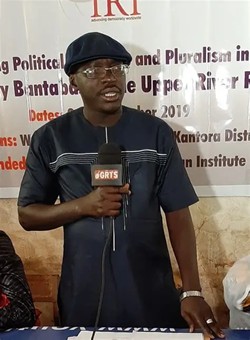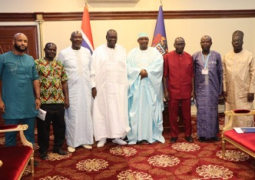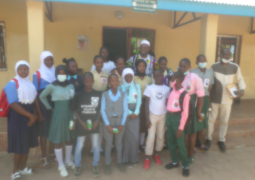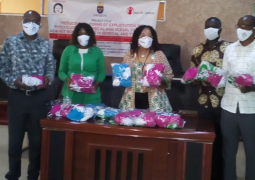
The inauguration ceremony drew key stakeholders and partners, including UNDP officials, local authorities, representatives from the NGO Affairs Agency and TANGO, project beneficiaries, and community members.
Speaking at the event, Mr Nfamara Jawneh, Executive Director of Beakanyang, outlined the rationale behind the facility’s establishment.
“In The Gambia, many households rely on firewood and charcoal for cooking, which contributes to deforestation and respiratory illnesses due to poor indoor air quality. These challenges hinder progress towards achieving SDG7 goal for clean energy. Projects like this are essential for promoting clean cooking alternatives and reducing climate impact,” he stated.
As part of the project, eight male metalworkers and 20 female artisans have been trained to produce energy-efficient stoves using scrap metal and clay at the facility.
Additionally, over 500 men and women across 10 communities in URR have been sensitised on the economic, social, and environmental benefits of improved stoves and renewable energy. To date, more than 100 stoves have been produced and distributed free of charge to vulnerable women, including those with disabilities and female-headed households.
Besides, six young women have also received training in solar installation and maintenance to ensure the long-term sustainability of the welding system.
Mr Jawneh emphasised that the project aligns with The Gambia’s Nationally Determined Contributions and will foster resilience and sustainable development in the region. He noted that the initiative aims to accelerate the adoption of improved cooking stoves in communities most affected by climate change, where traditional cooking methods remain widespread.
The solar-powered facility is designed to reduce deforestation, mitigate climate change, recycle scrap metal, and improve access to affordable and efficient energy. It also creates employment opportunities for potters and metalworkers, enhances public health by reducing smoke-related illnesses, and lowers greenhouse gas emissions.
Looking ahead, Mr Jawneh revealed Beakanyang’s strategic plan for 2025–2030, which includes the construction of four multi-functional platforms across the Upper River Region powered by clean energy.
“We therefore call on partners such as UNDP to continue supporting us in realising our strategic objectives,” he appealed.
In his inaugural address, Councillor Mawdo Sisawo of Sutukonding Ward commended Beakanyang’s contributions to the socio-economic development of Wulli and urged community members to safeguard the facility’s sustainability.
“We are proud and appreciative of Beakanyang’s immense contributions to our community’s development,” he remarked.
Mrs Dusu Jatta, a project beneficiary, expressed gratitude to UNDP and the Climate Promise Fund for supporting what she described as a life-changing initiative.
“Firewood has become scarce and expensive. With the new Beakanyang stoves, we can cook using fewer sticks, without smoke or health risks, which eases our financial burden,” she said.
UNDP officials praised the project’s impact and lauded Beakanyang for its achievements.
The inauguration of the solar-powered welding facility marks a significant milestone in advancing renewable energy and sustainable development in The Gambia. It also underscores Beakanyang’s commitment to community empowerment and expanding access to reliable, affordable, and clean energy solutions.





